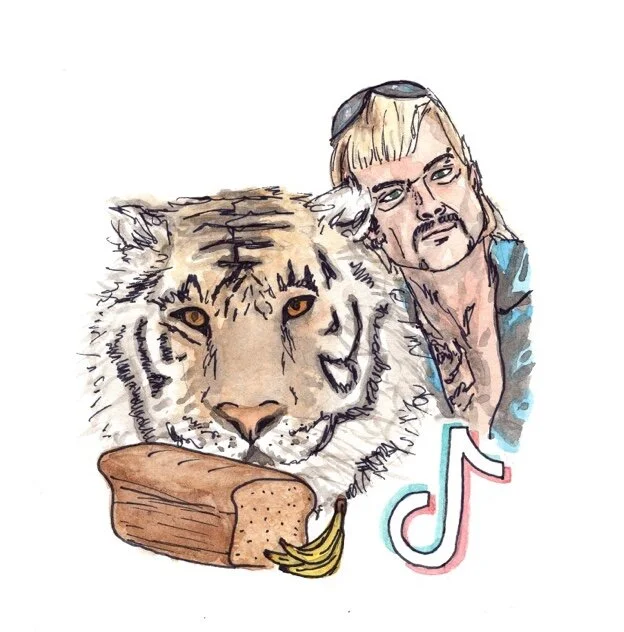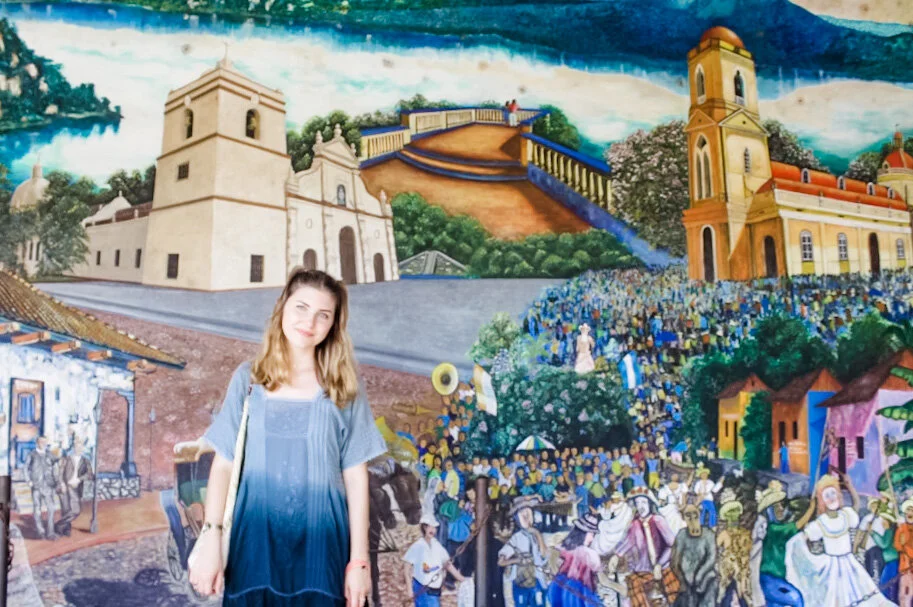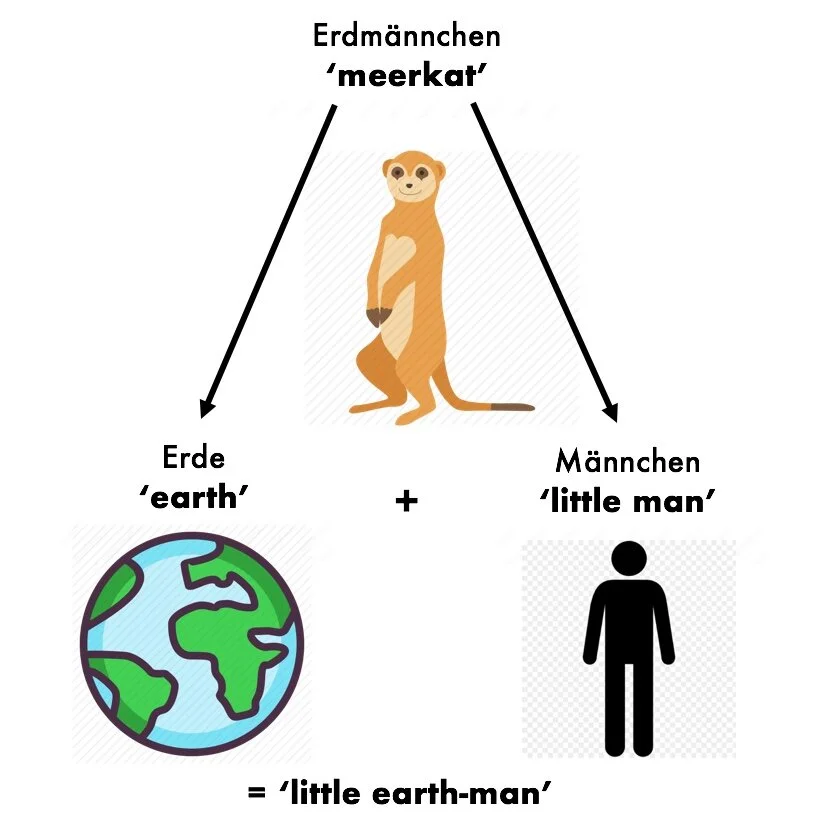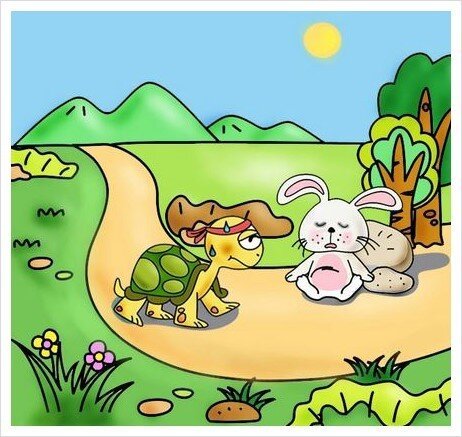Korean Through Stories
Korean short stories 짧은 이야기 (jjalb-eun iyagi). 📸: Lisa Jeon Ox.
Learning a language with short, easy stories is a fun and very effective way to practice what you have learned in your target language. That’s because stories build and reinforce your language skills. Just as they worked for learning your first language, stories are invaluable for learning another language. They help you build your foundational skills in the language, and help you put together the building blocks that you need to thoroughly understand before advancing to more difficult skills and concepts.
In addition, stories are memorable. If you find that K-pop songs are earworms that help you easily remember words and expressions, it’s even harder to forget the stories, songs, and nursery rhymes that we learned as children! Bet you still remember the simple lines and catchy rhymes from the short stories that helped you learn the basics of your first language (e.g., “Goodnight Moon,” “The Very Hungry Caterpillar,” “The Giving Tree,” etc.). The same goes for easy and short Korean stories. Simple storylines give context to the vocabulary you know, while the repetition and visuals used as the story progresses make the words and phrases stick in your mind.
Stories are motivating, too. Learning a language through stories boosts your confidence and gives you motivation to reach the next level of study. Once you know the beginner basics of the language, it is a very rewarding feeling to be able to draw on that knowledge to read, or even write, your own Korean short story.
Finally, stories transmit cultural values and information. Stories in any language take you to an imaginary world created by the author(s), in turn taking your mind away from the process of studying and enabling you to learn more naturally and intuitively. They impart interesting cultural information, like storytelling styles in your target language, the types of characters that are salient, and the kinds of behaviors and values they embody, as well as common scenes and conversations that play out in daily life. Particularly fascinating (to us as learners) is finding nuanced cultural differences in classic stories known around the world that have been translated into another language.
For these reasons, one of our favorite ways to assess learner progress at LanGo is through fun, but challenging, final projects that involve stories. This post highlights the impressive final projects created by our beginner Korean students, who put together everything they’ve learned so far to produce the awesome collection of Korean short stories below. For each story, the first line is in Korean (i.e., written in Hangeul). The second line shows the transliteration using Revised Romanization with dashes (-) to denote select morpheme boundaries (e.g., particles, grammatical affixes, and verb endings for the informal polite speech style) and dots (·) to denote syllable boundaries. The third line provides the English translation.
Original short stories
The first two levels in the Korean language program at LanGo focus on learning and practicing the beginner basics of the language. By the end of level two, students know several verb tenses, are able to recognize and use important grammatical particles, and have mastered hundreds of high-frequency vocabulary words and phrases. To put all of this knowledge into action, our Beginner II Korean students created, illustrated, and read a collection of original short stories (짧은 이야기 jjalb-eun iyagi). Their stories feature a lovely cast of Korean animals and food, as well as lots of exciting verb tenses and several challenging irregular verbs.
Ashley’s short story 애슐리의 짧은 이야기
Ashley’s short story 애슐리의 짧은 이야기. Original illustration by Ashley Lewis.
숲에서 토끼가 산책하고 있어요.
sup-eseo tokki-ga sanchaek ha-go isseo-yo.
In the forest, the rabbit is hiking.
그는 그의 친구들을 봤어요.
geu-neun geu-ui chin·gu-deur-eul bwasseo-yo.
He saw his friends.
그는 배가 고파서 정원에서 그는 당근과 딸기를 먹었어요.
geu-neun bae-ga gopa-seo jeong-won-eseo geu-neun danggeun-gwa ttalgi-reul meogeosseo-yo.
Because he was hungry, he ate a carrot and a strawberry in the garden.
그는 나무에서 새들이랑 노래해요.
geu-neun namu-eseo sae-deur-irang norae hae-yo.
At the tree, he sings with the birds.
푸른색 호수에서 그와 물고기들은 수영해요.
pureun-saek hosu-eseo geu-wa mulgogi-deur-eun su-yeong hae-yo.
In the blue lake, he and the fish swim.
긴 하루였어요!
gin ha-ru yeosseo-yo!
It was a long day!
오늘 밤 그는 푹 잘 거예요.
oneul bam geu-neun puk jal geo ye-yo.
He will sleep very well tonight.
Luis’s short story 루이스의 짧은 이야기
Luis’s short story 루이스의 짧은 이야기. Original illustration by Luis Hernandez.
뱀 그리고 오리는 저녁으로 비싼 레스토랑에 가고 있어요.
baem geurigo ori-neun jeo·nyeog-euro bi·ssan reseutorang-e ga-go isseo-yo.
A snake and a duck are going to an expensive restaurant for dinner.
뱀은 막걸리를 마시고 싶어요.
baem-eun makkeolli-reul masi-go sipeo-yo.
The snake wants to drink makkeolli (Korean rice wine).
하지만, 오리는 당근하고 양파 수프를 먹고 싶어요.
ha-jiman, ori-neun danggeun-hago yangpa supeu-reul meok-go sipeo-yo
However, the duck wants to eat carrot and onion soup.
그들은 레스토랑에 웨이터에게 주문해요.
geu-deur-eun reseutorang-e weiteo-eseo jumun hae-yo.
At the restaurant, they order from the waiter.
뱀은 막걸리를 좋아요, 그렇지만 오리는 그녀의 수프가 차가워요.
baem-eun makkeolli-reul joa-yo, geureo-chiman ori-neun geu·nyeo-ui supeu-ga chagawo-yo.
The snake likes the makgeolli, however as for the duck her soup is cold.
오리는 수프에 벌이 있어요.
ori-neun supeu-e beor-i isseo-yo.
The duck’s soup has a bee in it.
뱀하고 오리는 집으로 걸어요.
baem-hago ori-neun jib-euro georeo-yo.
The snake and the duck walk home.
오리는 아주 슬퍼요!
ori-neun aju seulpeo-yo!
The duck is oh so sad!
Abi’s short story 애비의 짧은 이야기
개가 친구들과 거북이의 집 갔어요.
gae-ga chin·gu-deul-gwa geobugi-eui jip gasseo-yo.
The dog and its friends went to the turtle’s house.
개는 거북이를 봤어요.
gae-neun geobugi-reul bwasseo-yo
The dog saw the turtle.
거북이는 나빴어요 그리고 음식을 많이 먹었어요.
geobugi-neun nappasseo-yo geuri-go eumsig-eul man-i meogeosseo-yo.
The turtle was bad and ate a lot of the food.
개는 음식이 없어요!
gae-neun eumsig-i eopseo-yo!
As for the dog, it had no food!
Aesop’s fable “The Tortoise and the Hare”
The next two levels in LanGo’s Korean language program are all about practicing the beginner basics through task-based conversations and improving integrated skills — speaking (production and interaction), understanding (listening and reading), and writing. By the time students complete these levels, they have a greatly expanded vocabulary (1,000-2,000 words+) as well as a much better understanding of how Korean works as a whole, from sound changes that occur in pronunciation, to the way that conversations are structured, to more complex grammatical phenomena that occur in the language. This equips them well with the tools they need to speak in a variety of conversational scenarios, and to read and write much longer texts in Korean.
To showcase their integrated skills, our Beginner IV Korean students analyzed, translated, and read the classic Aesop’s fable “The Tortoise and the Hare” 이솝 우화 "토끼와 거북이." The version we chose for the final project is from the collection of Korean folk tales in “The Frog’s Tears and Other Stories” by Hye-Sook Wang 왕혜숙. As you’ll see below, the Korean version of the story has some interesting cultural differences from the English version, such as the different speech styles used by the tortoise and the hare to denote speaker status, and Korean idiomatic phrases that lack English counterparts.
[리사 선생님] 머리말
토끼는 어떤 동물인지 생각해 보세요. ‘토끼' 하면 뭐가 제일 먼저 생각나요? 거북이는 어떤 동물인지 생각해 보세요. ‘거북이' 하면 뭐가 제일 먼저 생각나요? 이 이야기에서 토끼와 거북이는 어떻게 그려지고 있을까요? 그리고 토끼와 거북이 사이에 무슨 일이 있을까요? 추측해 보세요.
tokki-neun eotteon dongmul in-ji saenggak hae bose-yo. ‘tokki’ ha-myeon mwo-ga je-il meonjeo saenggak na-yo? geobugi-neun eotteon dongmul in-ji saenggak hae bose-yo. ‘geobugi’ ha-myeon mwo-ga je-il meonjeo saenggak na-yo? i iyagi-eseo tokki-wa geobugi-neun eotteoke geuryeoji-go isseulkka-yo? geuri-go tokki-wa geobugi sai-e museun ir-i isseulkka-yo? chucheuk hae bose-yo.
Think about what kind of animal a hare is. When you hear ‘hare,’ what do you think of first? When you hear ‘tortoise,’ what do you think of first? In this story how do you think the hare and the tortoise are depicted? And what kind of events do you think arise between the hare and the tortoise? Try and guess.
[데이빗] 내레이터
옛날 아주 작은 산에 토끼와 거북이가 살았습니다. 토끼는 산에 사는 작은 동물들 중에서 제일 빨리 달릴 수 있어서 항상 잘난 척은 했습니다. 토끼가 너무 뻐기니까 거북이는 좀 보기가 싫었습니다. 거북이는 토끼를 놀려주고 싶어서 어느 날 토끼한테 말했습니다.
yennal aju jag-eun san-e tokki-wa geobugi-ga sarass-seumnida. tokki-neun san-e jag-eun dongmul-deul jung-eseo je-il ppalli dallil su isseo-seo hangsang jalnan cheog-eun haess-seumnida. tokki-ga neomu ppeogi-nikka geobugi-neun jom bogi-ga sireoss-seumnida. geobugi-neun tokki-reul nollyeoju-go sipeo-seo oneu nal tokki-hante mal haess-seumnida.
Once upon a time, a hare and a tortoise lived in a very small mountain. Because the hare was the fastest of all the small animals in the mountains, it always showed off (lit. ‘pretended it was born well’). Because the hare bragged too much, the tortoise did not really like the sight of the hare. The turtle wanted to play a joke on the hare, so one day it told the hare:
[매디] 거북이
“저, 토끼님, 오늘 날씨가 참 좋지요? 우리 심심한데 달리기 시합이나 한번 하면 어떨까요? 토끼님은 굉장히 빠르시니까 물론 토끼님이 이기실 거예요.”
“jeo, tokki-nim, oneul nalssi-ga cham jochi-yo? uri simsim han-de dalli-gi sihab-ina han-beon ha-myeon eotteol-kkayo? tokki-nim-eun goengjang-hi ppareu-sinikka mullon tokki-nim-i igi-sil geo ye-yo.”
“Hey, Master Hare, isn’t the weather really quite nice today? Since we are bored, what if we tried to do a running competition? Because Master Hare is very fast of course you will win.”
[장문] 토끼
“그럼 당연히 내가 이기지. 이 산에서 나보다 빠른 사람은 없으니까. 그런데, 질 걸 뻔히 알면서 왜 시합은 하려고 하지?”
“geu-reom dangyeon-hi nae-ga igi-ji. i san-eseo na-boda ppareun saram-eun eopseu-nikka. geu-reonde, jil geol ppeon-hi al-myeon-seo wae sihab-eun ha-ryeogo ha-ji?”
“Then of course I will win. For no one is faster than me on this mountain. By the way, why do you want to compete when you know you will lose?”
[매디] 거북이
“아이, 심심하니까요. 우리 시합 한번 해 봐요, 네? 진 사람이 저녁을 한턱 내기로 해요. 틀림없이 토끼님이 이기실 거예요.”
“ai, simsim hanikka-yo. uri sihap han-beon hae bwa-yo, ne? jin saram-i jeo·nyeog-eul hanteok naegi-ro hae-yo. teullim eops-i tokki-nim-i igi-sil geo ye-yo.”
“Oh, because I’m bored! Let’s try competing, okay? Let’s decide that the loser must treat for dinner. Without a doubt, Master Hare will win.”
[리바이] 내레이터
토끼는 귀가 솔깃해져서 말했습니다.
tokki-neun gwi-ga solgit hae jyeo-seo mal haess-seumnida.
The hare was tempted (lit. its ears perked up), so it said:
[장문] 토끼
“그래? 그러면 오늘 저녁 걱정은 하지 않아도 되겠군, 하하하…”
“geu-rae? geu-reomyeon oneul jeo·nyeok geokjeong-eun ha-ji ana-do doeget-gun, ha-ha-ha…”
“Really? Then I guess I won’t have to worry about today’s dinner, ha ha ha…”
[데이빗] 내레이터
토끼와 거북이는 산 밑에 있는 마을까지 달리기로 했습니다. 경기가 시작외자 토끼는 앞만 보고 빨리빨리 달렸습니다. 한참 후 궁금해진 토끼는 뒤를 돌아 보았습니다. 거북이가 보이지 않았습니다. 토끼는 생각했습니다.
tokki-wa geobugi-neun san mit-e it-neun ma·eul-kkaji dalligi-ro haess-seumnida. gyeonggi-ga sijag-oeja tokki-neun ap-man bo-go ppalli-ppalli dallyeoss-seumnida. hanchim hu gunggeum hae-jin tokki-neun dwi-reul dora boass-seumnida. geobugi-ga boi-ji anass-seumnida. tokki-neun saenggak haess-seumnida:
The hare and the tortoise decided to run up to the village that was under the mountain. Just as the competition started the hare only looked forward and ran fast. A long time afterwards, the hare became curious and turned back and looked. It didn’t see the tortoise. The hare thought:
[장문] 토끼
“흥, 느림보 거북이는 아직 보이지도 않으니까 한잠 자고 가도 되겠지? 그래도 문제없이 이길 수 있을 거야.”
“heung, neurim-bo geobugi-neun ajik boiji-do aneu-nikka han-jam ja-go ga-do doeget-ji? geu-rae-do munje-eops-i igil su isseul geo-ya.”
“Hm, I can’t see the slowpoke turtle yet, so it will be okay to go to take a quick sleep and go, right? Even so, I will be able to win without a problem.”
[매디] 내레이터
토끼가 잠을 자는 동안에도 거북이는 조금도 쉬지 않고 열심히 달렸습니다. 그리고 자고 있는 토끼보다 먼저 마을에 도착해서 토끼를 기다렸습니다.
tokki-ga jam-eul ja-neun dong·an-e-do geobugi-neun jogeum-do swi-ji anko yeolsim-hi dallyeoss-seumnida. geurigo ja-go it-neun tokki-boda meonjeo ma·eur-e dochak hae-seo tokki-reul gidaryeoss-seumnida.
Even while the hare was sleeping, the tortoise ran hard without resting even a little bit. Then the tortoise arrived at the village before the sleeping hare and waited for the hare.
[데이빗] 내레이터
얼마 후 잠에서 깬 토끼는 주위를 둘러보았습니다. 여전히 거북이는 보이지 않았습니다. 토끼는.
eolma hu jam-eseo kkaen tokki-neun juwi-reul dulleo-boass-seumnida. yeojeon-hi geobugi-neun boi-ji anass-seumnida.
After a while, the rabbit woke up and looked around at his surroundings. It still did not see the tortoise. The hare said.
[장문] 토끼
“아니, 아직도 안 왔어? 역시 거북이는 느림보군. 거북이와 경주하는 건 ‘식은 죽 먹기’라니까.”
“ani, ajik-do an wasseo? yeoksi geobugi-neun neurim-bo-gun. geobugi-wa gyeongju ha-neun geon ‘sig-eun juk meok-gi’ ranikka.”
“No, have you still not arrived? As expected, the tortoise is a slowpoke. Because racing with a tortoise is an easy task (lit. ‘like eating cold rice porridge.’).”
[데이빗] 내레이터
생각하고 마을로 내려갔습니다.
saenggak ha-go ma·eul-lo naeryeo gass-seumnida.
The hare thought and went down to the village.
[리바이] 내레이터
그런데 어찌 된 일입니까? 거북이가 토끼를 맞으며 인사했습니다.
geu-reonde eojji doen ir imnikka? geobugi-ga tokki-reul majeu-myeo insa haess-seumnida:
So then what happened? The tortoise, upon seeing the hare, greeted it:
[매디] 거북이
“안녕 토끼님, 저는 30분 전에 벌써 도착해서 토끼님을 기다리고 있어요. 왜 이제 오세요? 무슨 급한 일이 있으셨어요? 어쨌든 토끼님이 지셨으니까 오늘 저녁은 토끼님이 사셔야 겠군요. 아이, 좋아라! 고마워요, 토끼님!
“annyeong tokki-nim, jeo-neun samsip-bun jeon-e beolsseo dochak hae-seo tokki-nim-eul gidari-go isseo-yo. wae i-je ose-yo? museun geup-han ir-i isseu-syeosseo-yo? eojjaetdeun tokki-nim-i jisyeosseu-nikka oneul jeo·nyeog-eun tokki-nim-i sasyeo-ya get-gun-yo. ai, joa-ra! gomawo-yo, tokki-nim!”
“Hello Master Hare, I already arrived 30 minutes ago so I have been waiting for you. Why are you coming now? Did you have some kind of important issue? Anyway, since Master Hare lost, I guess you must buy today’s dinner. Wow, how nice! Thanks, Master Hare!”
[리사 선생님] 끝말
토끼는 너무 화가 났지만 약속을 했으니까 할 수 없이 거북이한테 저녁을 사 주었습니다. 그리고 다시는 시합할 때 자지 않기로 결심했습니다.
tokki-neun neomu hwaga nat-jiman yaksog-eul haess-eunikka hal su eops-i geobugi-hante jeo·nyeog-eul sa ju·eoss-seumnida. geu-ri-go dasi-neun sihap hal ttae ja-ji anki-ro gyeolsim haess-seumnida.
Although the hare was very angry, because it had promised to do so, the hare was forced to buy dinner for the tortoise. And the hare decided to never again sleep when competing.
Congrats to our students on this LanGo-rific collection of short stories! We’re very proud of your hard work and can’t wait for the next session of K-class. 우리 한국어 학생들 수고 많았어요!


































Tools for helping you master some of the trickier points of German grammar, whether you’re learning it for the first time or wanting to review the fundamentals. Los geht’s!